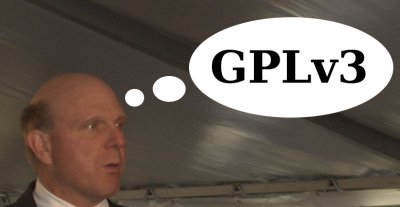
--Jim Allchin, Microsoft
The company is not trying to convert people wholesale to .NET, but IronRuby is part of an attempt to regain ground lost among a generation of developers who've gone to Mac and open source and frameworks. "We are not fools, and think: 'Hmm, people are suddenly going to transition.' We think there are some interesting combinations, where people can use Ruby the language on top of our libraries, which will be appealing and interesting," he said.
 If Microsoft is permitted to grab open frameworks that compete against Microsoft's own tools , then Microsoft can continue to change rules, slanting them to mitigate competition and assemble everything around intellectual monopolies it boasts.
If Microsoft is permitted to grab open frameworks that compete against Microsoft's own tools , then Microsoft can continue to change rules, slanting them to mitigate competition and assemble everything around intellectual monopolies it boasts.
To give another example of Microsoft's attitude towards open source, watch this one from the news. Gates views it as something that already excludes copyleft licences like the GPL. Is it deliberate or is it ignorance?
As but one more piece of testamentary evidence that the old guard at Microsoft needs to be shown the door, Bill Gates has demonstrated conclusively that he has exactly zero understanding of open source, or at least zero desire to have an intelligent discussion about it.
[...]
Open source insists upon leaving software open to further improvement. And if you were to read the European Union's report on open source, you'd see that it's actually a massive opportunity for improved GDP growth.
What open source does is ensure that customers share equally in the economic benefits of software, rather than having profits hoarded by one company (i.e., Microsoft's model). The GPL does this perhaps best of all. In another age, Mr. Gates would have found the GPL to be a dear friend to his better capitalist instincts. It's actually a close cousin to a proprietary license in some ways, except that it protects through openness, not closed source.
